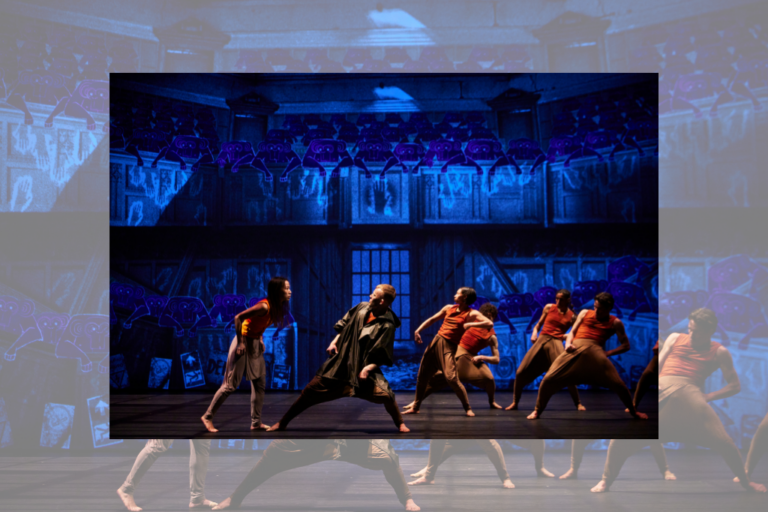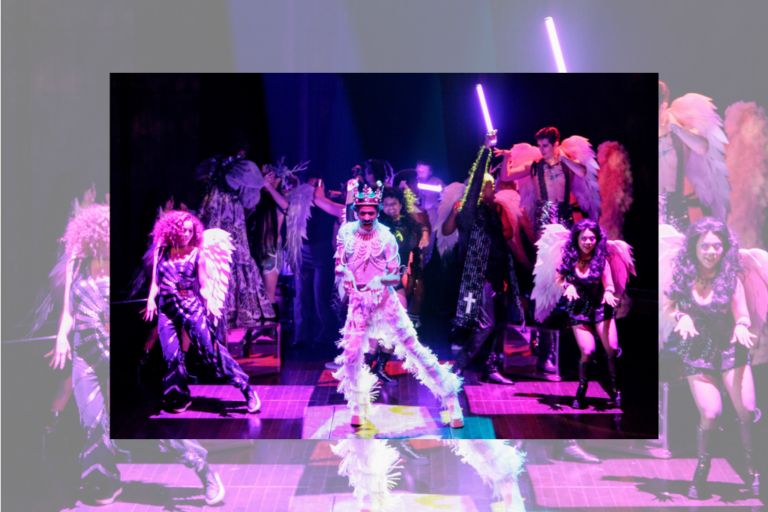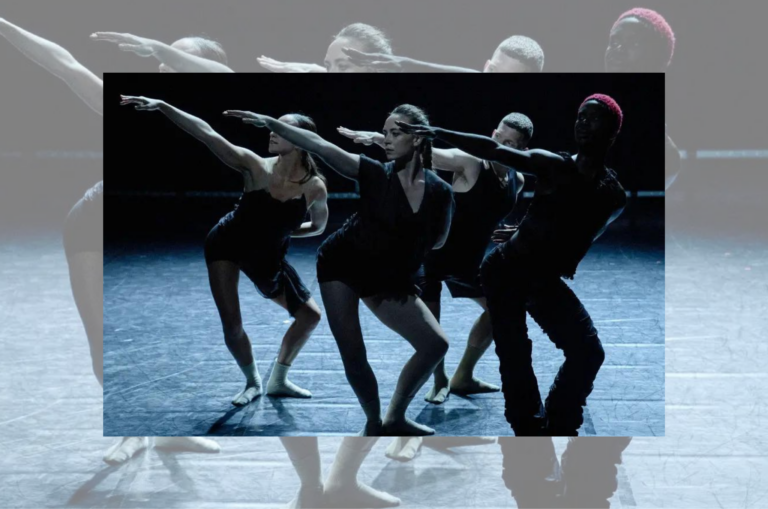REVIEW: X and da Spirit at Theatre Passe Muraille
How can performance be a form of meaningful protest? Or at least embody the spirit of protest? It’s a question which has fueled and foiled theatre for centuries (ahem, Brecht). When theatre compels us to take on the powers that be after the curtains close, it takes on a new power: the ability to effect change.
Such theatrical calls to action are all the more urgent for a post-2020 Black Lives Matter. As viral hashtags circulate with less frequency and protests become less populated, activists are not just fighting against white supremacy and police brutality. They are now fighting to keep a movement alive — to show people that the long-haul struggle for Black lives requires long-haul collective support as well.
X and da Spirit sits squarely in opposition to any threat towards BLM’s sustained advocacy. Originally premiering in 2022 at the Toronto Fringe Festival (where it won Patron’s Pick), Theatre Passe Muraille restaged the critics’ and audiences’ darling as a double bill with their premiere of Okay, you can stop now… Playing from February 4-11, playwright, performer, and producer Donovan Hayden reunited with performer Trinity Lloyd and director Rais Clarke-Mendes to once again invoke “da Spirit of the Struggle.”
And it’s an utterly captivating Spirit to witness. In the span of just 45 minutes, Hayden grants his audiences the ability to sustain his hope in a better future for Black Canadians. Conveying radical joys and doubtful solitudes with equal parts humour and humility, Hayden shatters the fourth wall with unmatched clarity and intention. Riveting, generous, and deeply important, X and da Spirit is theatre that invigorates new hope into this crucial struggle.
X and da Spirit is greatly inspired by the transgressive power of street art. It fittingly begins with a large mural by set designer Chris Leal, seemingly graffitied to the side of a concrete Toronto wall. Indeed, this stage piece is a replica of an actual Toronto mural that can be found in Nordheimer Ravine. Just as it does in the original underneath Spadina Bridge, bright oranges and yellows reads “ACAB” (All Cops Are Bastards), surrounded by the names of those now deceased at the hands of police brutality.
We open to Lloyd’s MC maintaining this makeshift memorial to both Toronto and international victims with Lauryn Hill’s “Lost Ones” playing in the background. Noticing the audience, she jumps up and asks if anyone is a cop (or intends to call them). But she doesn’t just pretend to hear the right answer; she actively coaxes audience members to give her an affirmative “no.” Only then does she let her guard down, and the play begins its expert employment of participatory action. MC also starts to introduce new mediums of expression; after telling us that she was “literally born on a TTC subway train,” Lloyd eases into an excellent spoken word poem that summarizes recent events pertaining to BLM, as well as the effort to continue the movement.
MC’s mural is not just a monumental art piece, though. Carrying this mural from real-life to stage acknowledges that within it lies “da Spirit of the Struggle,” an affective force which inspires those who come across it to carry on the fight for justice. And when Hayden’s X walks on stage and sees MC’s mural, he is in turn chosen by da Spirit (who Lloyd portrays simultaneously). These moments when da Spirit visits X are embodied by an energy that starts in Donovan’s hand, reaching toward the mural, and courses through his body with a simple spin. X is enchanted by the Spirit, a tingling in his body that stands somewhere between hope and nervousness. These short motifs make it clear that X has been changed in a way that words alone cannot. Clarke-Mendes’ direction shows that passionate desire for change is just as embodied as it is verbalized.
X is emboldened to take on the fight against police brutality, and at first da Spirit is able to support X by introducing him to ways that he can get involved with local protests and collective actions. Yet X soon realizes that da Spirit is fleeting, and while it can provide him with the desire to effect change, it can’t provide him with the tools to effect change. This is crucial to grounding the play’s spirited magic in difficult reality; Donovan shows that carrying on da Spirit is often emotionally and physically burdensome.
The notion of care sets the stage for the most compelling part of X and da Spirit, where X is preparing to attend a protest and asks the audience to help him get ready. This includes having an audience member write the number of Toronto’s legal aid hotline on his arm, mixing water with baking soda as an astringent against tear gas, and even trusting an audience member to hold his wallet for him. While in many contexts these actions could seem dire, Hayden’s invitation for audience participation instead creates an enthusiastic environment of support.
Overall, something feels radical about these soft moments. By allowing audiences to protest alongside it, X and da Spirit lets love and collective support lead the way toward breaking down stigmas and biases. This is a refreshing and exciting proposition for theatre; I’d say I felt da Spirit, too.















Comments